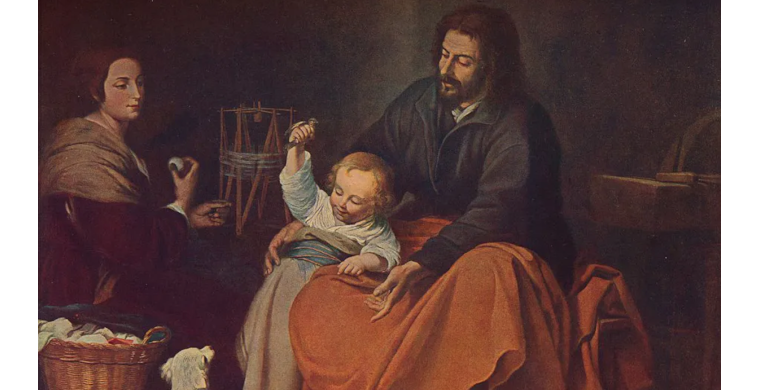THE JOSEPH ENIGMA
By David G. Duggan (c)
www.virtueonline.org
December 25, 2022
Joseph is one of the Bible's enigmas. Mentioned in barely 20 verses in only two of the Gospels, he is seen as obedient to God, unquestioning of God's dream-induced messengers, and faithful to his betrothed before she gave birth. Unlike Mary, we know little of Joseph's clan, only that he is the son of Jacob, Matt. 1: 16 (or is it Heli, Luke 3:23) and grandson of Matthan in a lineage that goes back to Abraham (or is it Adam, Luke 3: 38).
From these bare-bones accounts, people have woven all sorts of tales: that Joseph and Mary traveled to Jerusalem by donkey, that he was a carpenter and perhaps a widower, that the gold the Magi brought to the infant was to last the holy family through their exile in Egypt, and that Joseph trained Jesus in his trade. None of this is provable from the Biblical text which is starkly sparse in its depictions of our Lord's stepfather.
Scholars get their academic gowns in a twist over whether Jesus' brothers described in the Gospels were of Mary or Joseph or both or neither. I'm not sure why this matters but it may give them something to argue about instead of trying to spread the good news of salvation. Joseph's status as somebody necessary to the narrative is in some ways reminiscent of the original Joseph: persecuted in a foreign land, but scarcely earth-shattering.
The Joseph enigma is mirrored in countless Biblical stories: characters who appear to move the narrative but about which little is known apart from their brief time on the stage of 1st century antiquity. Rufus and Alexander, the sons of Simon the Cyrene who helped Jesus carry His cross to Golgotha (Mark 15: 21); Lydia, the dealer in the purple cloth and the first Christian in Europe whose household was baptized and who then welcomed Paul and Silas back to her home after they had been wrongly imprisoned (Acts 16: 13-15, 40); Ananais and Sapphira, early followers of The Way who sold a plot of land but held back some of the proceeds from the common purse and paid for their transgression with their lives (Acts 5: 1-11). Some of these appearances are a morality play; others a metaphor for Christ's sacrifice; others simply a historical curiosity.
Making sense of these snippets may be a fool's errand: there will never be consensus, but why is consensus demanded or even favored? Better to enjoy the story that never gets old: "Today is born a savior who is Christ the Lord."
David Duggan is a retired attorney living in Chicago














